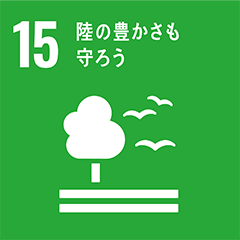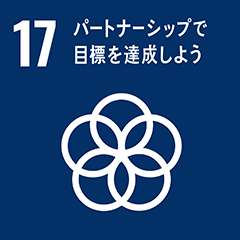Inochi Declaration
Reflect on global challenges through something as familiar as food. Food is intricately connected to global issues such as climate change and armed conflicts. Let us join hands to address challenges other than food as well.
In recent times, as seen in the issue of rising prices of rice in Japan, things we take for granted in our daily lives are no longer guaranteed. Global challenges such as climate change and biodiversity loss are deeply connected to the food we consume every day. As of 2023, the number of people suffering from hunger worldwide has risen to 730 million*1. While one in every eleven people on the planet faces food insecurity, one billion tons of food is wasted annually. In Japan alone, 38 kilograms of food waste is generated per person each year*2. Food is vital for nutrition and health and is an essential element that sustains Inochi. Precisely because the problem of food waste is close to home, we may discover new insights when we reflect upon it.
The war between Russia and Ukraine, which began in 2022, still shows no signs of resolution. People continue their daily lives amid the conflict. Bread holds significant meaning in Ukrainian culture—it is a symbolic food item. During the Christian celebration of Easter, special breads and cakes are prepared. In Ukraine, a country founded on agriculture, wheat and bread symbolize culture, economy, and identity, and they are the foundation of national sovereignty and prosperity. However, the war has spread landmines and unexploded ordnance across the country, continuing to threaten civilian lives. It is said that landmines exist in about one-third of Ukraine’s territory. The United Nations Development Programme (UNDP) supports landmine clearance efforts in Ukraine. In Kherson Oblast in southern Ukraine, wheat has been successfully harvested on demined land, contributing to economic recovery and the preservation of cultural traditions.

“20 Tragedies Hidden from the World” exhibited at the Osaka-Kansai Expo. Photo courtesy of UNDP Tokyo.
Food, which protects Inochi, is threatened by war, climate change, biodiversity loss, consumer culture, and many other factors. Nevertheless, there are actions that each of us can take in our daily lives. These include participating in global discussions, conducting research, and more. Food is intricately connected to all issues in the world, making it an accessible entry point for understanding these connections. The UNDP Representation Office in Tokyo disseminates the message that global challenges are in fact deeply linked to the lives of people in Japan.
The term “international cooperation” may sound distant. However, Japan and the world are interconnected. Global issues such as climate change, conflict, and biodiversity loss are closely linked to our daily behavior and lifestyle through food. We invite people to reflect on these connections.
UNDP utilizes Japan’s knowledge and expertise to promote climate change countermeasures and green transformation (GX) in Pacific Island nations. Stakeholders from Vanuatu, Samoa, Papua New Guinea, and Timor-Leste visited Okinawa Prefecture to learn from the wisdom of Okinawan island communities, inclusive decision-making processes, climate change adaptation measures, and regional revitalization initiatives. Furthermore, on the occasion of the 9th Tokyo International Conference on African Development (TICAD9) to be held in Yokohama in 2025, UNDP has created opportunities for African and Japanese youth to connect and exchange views through a “Model African Union.” Staff and interns from the UNDP Tokyo Office also visit schools throughout Japan—from Hokkaido to Okinawa—offering outreach classes to promote understanding of Africa. These efforts aim to convey that domestic and international challenges are intimately connected to our lives.
At the Expo 2025 Osaka, Kansai, where the theme is “Designing Future Society for Our Lives,” UNDP is showcasing an art installation titled “20 Hidden Tragedies of the World.” International cooperation is no longer about providing topdown aid to developing countries. Even in societies that appear peaceful and prosperous, tragedy exists. This artwork captures various elements—division, climate change, conflict, drought, water scarcity, food crises, and societies that appear joyful—into a single piece, yet offers no definitive answers. By exhibiting this work to people of all ages, from children to the elderly, and asking what each of us can do in our own lives, UNDP aims to continue these educational and awareness-raising initiatives.
The Inochi Forum, in collaboration with international organizations such as UNDP, will demonstrate how everyday matters, beginning with food, are connected to global challenges, and will encourage each person to reflect on what they can do in their own lives and take action.
[Notes]
*1 FAO (2024) “The State of Food Security and Nutrition in the World Report”
https://openknowledge.fao.org/items/ebe19244-9611-443c-a2a6-25cec697b361
*2 Ministry of Agriculture, Forestry and Fisheries (2022 estimates)
https://www.maff.go.jp/j/press/shokuhin/recycle/attach/pdf/240621-8.pdf
[References]
・UNDP (United Nations Development Programme)
https://www.undp.org/ja/japan
・UNDP dialogue with filmmaker Naomi Kawase and comedian Naoki Tanaka about “20 Hidden Tragedies of the World” (Radio Kansai)
https://jocr.jp/raditopi/2025/06/27/640037/?detail-page=1
・Satoyama Initiative: Nature-harmonious society programs (Africa, Turkey, Costa Rica to Shizuoka, Japan)
https://www.undp.org/ja/japan/news/harmony-with-nature-lo-cally-led-landscape-approaches
https://www.undp.org/ja/japan/blog/comdeks-phase-4-knowl-edge-exchange-learning-from-japan-s-satoyama-sites
・Soul of Soil 2.0 – Easter bread culture and demining efforts in Ukraine
https://www.undp.org/ukraine/soul-of-soil-2
[Action Platform] Food and Agriculture
[SDGs]




